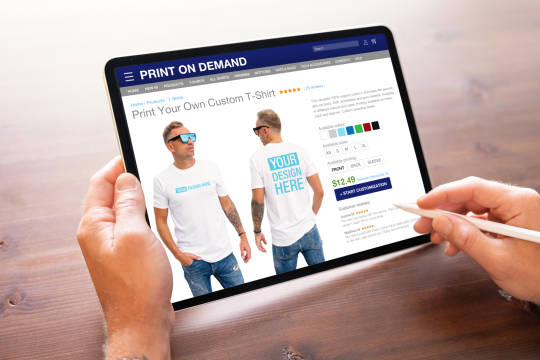Custom vs. Ready-Made Products: Why Personalized Items Are the Future of Ecommerce

Ecommerce is evolving, and consumer preferences are shifting towards personalized, made-to-order products. With the rise of customization options, businesses can offer unique products that cater to individual tastes, setting themselves apart from mass-produced goods.
In this article, we’ll explore why custom products are the future of ecommerce, their benefits, and how businesses can capitalize on this growing trend.
1. The Growing Demand for Custom Products
Today’s customers want products that reflect their personality, style, and needs. According to market studies, over 50% of shoppers prefer brands that offer personalized products.
From customized apparel to engraved accessories, personalization enhances the shopping experience, making customers feel valued and unique.
Popular Customized Product Categories:
- Clothing and accessories (embroidered bathrobes, printed t-shirts, engraved jewelry)
- Home décor (customized wall art, photo frames, personalized cushions)
- Gifts and keepsakes (name-engraved keychains, personalized mugs, custom notebooks)
2. Advantages of Custom Products Over Ready-Made Items
A) Higher Customer Engagement & Satisfaction
Custom products allow customers to participate in the design process, making them feel more connected to the brand. When customers can add names, colors, or special designs, they are more likely to make a purchase and return for more.
B) Premium Pricing & Better Profit Margins
Since customized products offer exclusivity, businesses can charge a premium price compared to mass-produced items. Customers are willing to pay more for unique, one-of-a-kind products, increasing profitability.
C) Lower Inventory Costs & Less Waste
Unlike ready-made products that require bulk inventory, custom items are made on demand. This reduces storage costs, minimizes overproduction, and leads to a more sustainable business model.
D) Competitive Advantage & Brand Loyalty
Offering personalized products sets your business apart from competitors selling generic, factory-made items. This uniqueness builds brand loyalty, as customers are more likely to return for future purchases.
3. Challenges of Selling Custom Products (And How to Overcome Them)
A) Longer Production & Delivery Time
Custom products take time to design and manufacture. Businesses can overcome this by optimizing workflow, using automation tools, and providing accurate estimated delivery times to customers.
B) Higher Production Costs
Since custom items are not mass-produced, production costs can be higher. However, using efficient print-on-demand or embroidery techniques can reduce expenses while maintaining quality.
C) Handling Customer Expectations
Customers may have high expectations for customization. Providing clear product previews, accurate descriptions, and excellent customer support helps manage expectations and reduce dissatisfaction.
4. How Businesses Can Leverage the Customization Trend
A) Invest in Personalization Technology
Using AI-driven customization tools and interactive product builders allows customers to see real-time previews of their designs, improving the shopping experience.
B) Offer a Seamless Online Shopping Experience
A well-designed ecommerce store with easy-to-use customization options, mobile-friendly navigation, and secure checkout encourages conversions.
C) Use Social Media & Influencer Marketing
Personalized products are highly shareable on social media. Encouraging customers to share their custom items on platforms like Instagram and TikTok can boost brand visibility and attract new buyers.
5. The Future of Custom Products in Ecommerce
The demand for customized products is expected to grow even further as technology advances and consumer preferences evolve. With 3D printing, AI personalization, and direct-to-garment printing, businesses will have more opportunities to offer unique, made-to-order products at scale.
Conclusion
Custom products are not just a trend; they are the future of ecommerce. They offer better customer satisfaction, higher profit margins, and a competitive edge over ready-made products. Businesses that embrace personalization now will be ahead of the curve, attracting loyal customers and increasing sales.
If you’re looking to start or scale a custom product business, contact us today to explore the best solutions for your ecommerce store!
